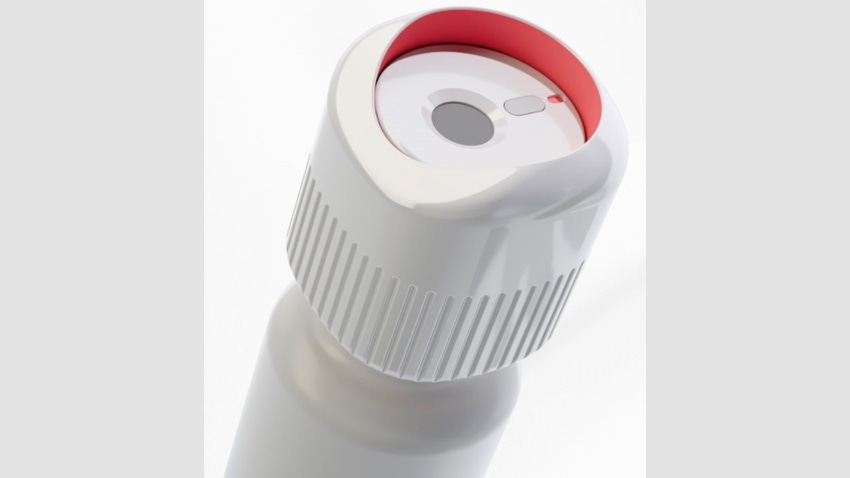Biometric Closure Wins Innovation Award
The winning pharmaceutical packaging project features a capsule that reads fingerprints and connects to the Internet of Things.

Bormioli Pharma recently announced the winner of its Call4Ideas contest launched in collaboration with Desall.com. The winning Turn-It project answered the call for a child-resistant closure (CRC) system for containers that leverages biometric recognition technology, thereby safeguarding medication and limiting its use to the patient for whom it was prescribed.
According to Federico Piutti, innovations manager, Bormioli Pharma, Call4Ideas was created to find solutions that minimize the risk of errors and enhance safety in administration. The contest also recognizes innovations that strengthen patient confidence in their therapy by sharing content about conditions and treatments and displaying all information found in the package leaflet.
The Turn-It project was presented by a team of industrial designers based in Lima, Peru. The capsule’s biometric technology is integrated through an electronically controlled mechanism powered by a rechargeable battery. The patient is able to set up the ID-Cap directly through the device. The electronics also allow a connection with most common smartphones to monitor treatment. This eletromechanical interaction was one of the elements that impressed Bormioli Pharma the most.
“At a time when the Internet of Things is becoming more and more pervasive in our lives, even for everyday objects, we believe that solutions like this can generate real interest in the market,” says Piutti.
The benefits of biometrics.
The capsule’s integrated biometric recognition technology reads patients’ fingerprints, allowing them to rotate the cap and access the medication. Biometric recognition can also take place via a dedicated app on a smartphone.
ID-Cap uses a fingerprint identifier integrated directly on the object so that it can be used with or without an internet connection. However, as Piutti explains, this is not intended to be an exclusive, final configuration.
“Even though it is not part of the concept we have presented so far, ID-Cap could connect to all the identification methods of a smartphone, such as fingerprints, face ID, and retina,” he says.
The main benefit of ID-Cap is to allow drug access only to authorized users. This is especially pertinent when it comes to drugs that could cause considerable harm to children or adults when taken accidentally. Additionally, the device is able to generate data related to patients’ habits that could be used by the patient; for example, as a reminder if they forget to take their medication.
Piutti shares that the ID-Cap could be beneficial for a large array of drugs, including opioids, antidepressants, psychotropics, and anti-cancer drugs, as well as other high-value drugs that patients need exclusive access to.
Bormioli Pharma is currently in the early stages of concept definition, and will have additional information regarding the cost of the device once the features of ID-Cap are fully defined. The company is also working on device compatibility with a range of drugs. The prototype for ID-Cap was unveiled at CPHI Barcelona in October.
“We present new product concepts based on emerging market needs to our partners to stimulate their interest,” says Piutti. “Once such interest has been established, we are able to start production in a very short timeframe.”
A second Call4Ideas, launched in 2023, will focus on exploring the uses of augmented reality in pharmaceutical packaging.
About the Author(s)
You May Also Like




